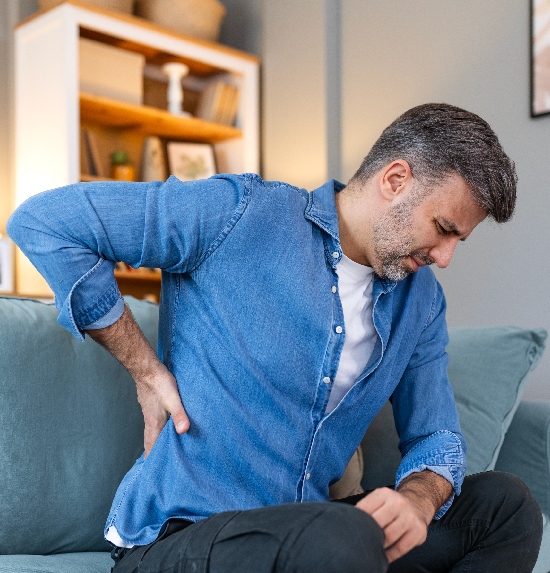
Understanding Irritable Bowel Syndrome
- Irritable bowel syndrome (IBS) is a long-term condition that affects bowel function. It leads to changes in bowel habits, such as the frequency and consistency of stools, and causes abdominal pain.1
- IBS is the most commonly diagnosed gastrointestinal disorder, affecting between 9% and 23% of people worldwide.2, 3
- While IBS can start during childhood, it is most common in early adulthood.2 Surveys show that women are slightly more affected by IBS, with a global prevalence of 12% compared with 8.6% in men.1
- Around 12% of people with IBS seek medical help, mostly visiting primary care doctors and gastroenterology clinics.3
Causes
- While many theories have been proposed, the exact cause of IBS remains unknown.3
- The development of IBS appears to involve several factors, including genetics, diet, gut bacteria, low-grade inflammation and issues with the gut’s neuroendocrine system (NES), also known as the gut’s nerve and hormone system.4
- One theory suggests that IBS is caused by changes in the NES, leading to abnormal bowel movements, secretions and sensations. These changes in NES could be due to genetics, diet, gut bacteria or low-grade inflammation.4
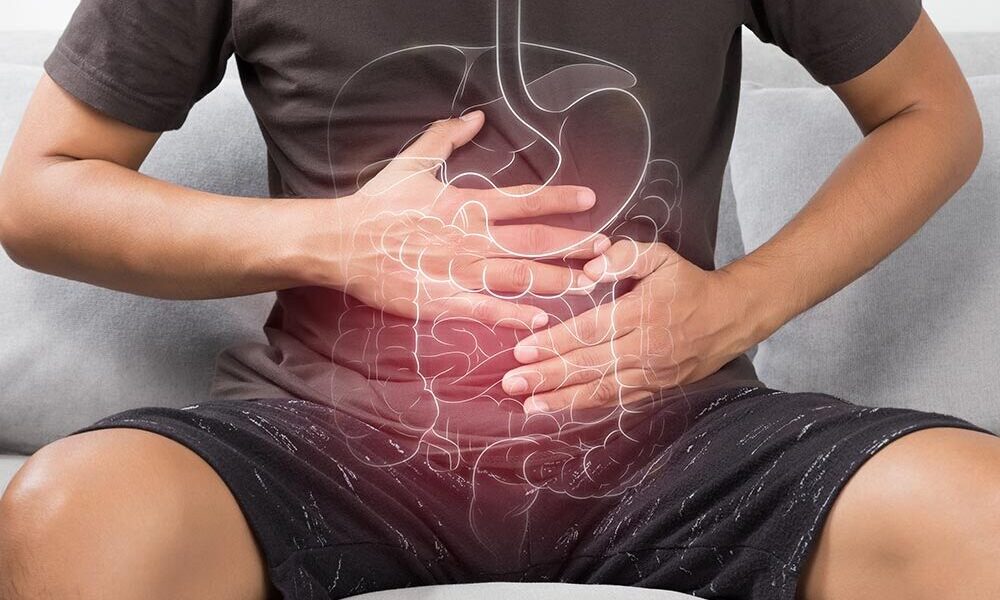
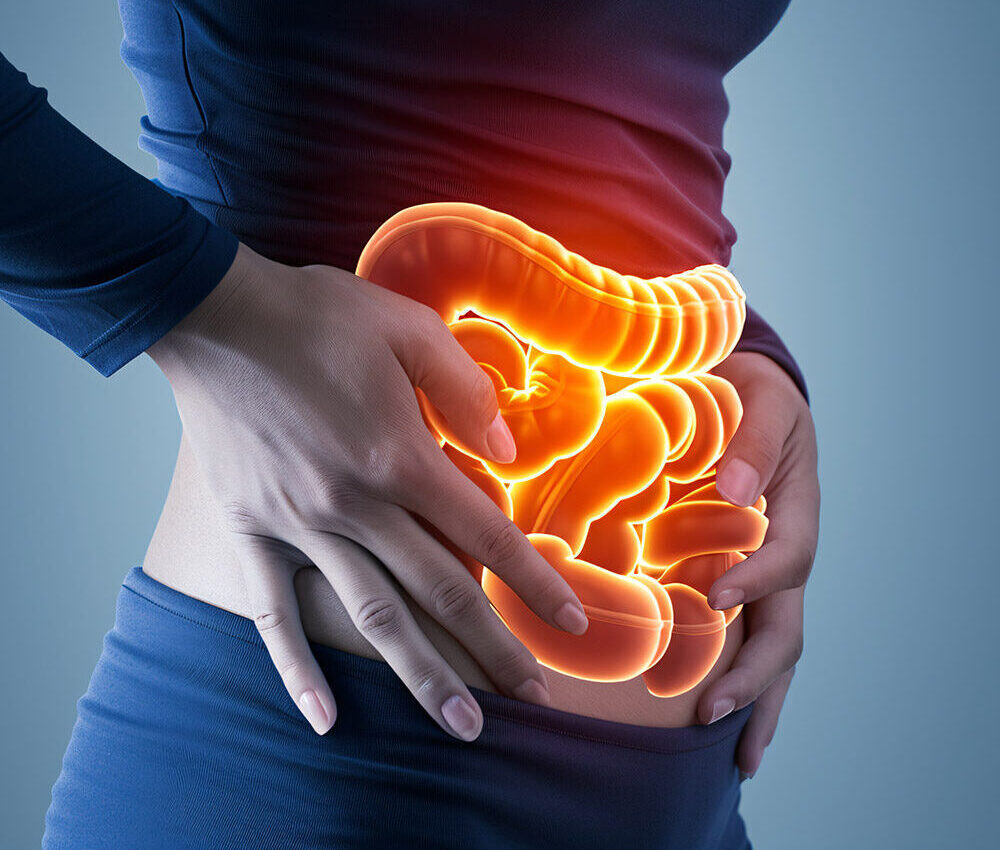
Symptoms
- IBS is defined as experiencing abdominal pain at least 1 day a week for the past 3 months. This pain is associated with at least 2 of the following1:
- Changes in bowel movements
- Changes in how often you go to the bathroom
- Changes in the appearance of your stools
- These symptoms must have started at least 6 months before the diagnosis.1
- IBS symptoms can include diarrhoea, constipation or both, along with abdominal pain, discomfort and bloating (a swollen or tight stomach).4
- The severity of symptoms varies among individuals, ranging from mild to severe. Some people experience symptoms every day, while others have them only occasionally, with weeks or months between episodes.4
- Although IBS is not linked to serious diseases or higher death rates, it significantly reduces the quality of life, similar to major chronic illnesses like diabetes, heart failure, kidney problems and liver disease.4
Diagnosis
- A doctor usually diagnoses IBS by looking at your symptoms and medical history. Currently, there are no specific laboratory or imaging tests to confirm IBS.5
- An experienced doctor (gastroenterologist) can identify the typical symptoms of IBS and determine if any symptoms suggest the need to check for other conditions.5
- The diagnosis starts with a thorough physical exam, where you describe your symptoms and medical history. The doctor may diagnose IBS based on this information but will also watch out for warning signs that might suggest another problem.5
- These warning signs include5:
- New symptoms appearing in someone over 50 years old
- Unexplained weight loss
- Low iron levels (anaemia)
- Signs of gastrointestinal bleeding
- Pain or symptoms that wake you up at night
- Your doctor will ask how long you have been experiencing symptoms. They might diagnose you with IBS if6
- You have had symptoms at least once a week for the past 3 months
- Your symptoms began at least 6 months ago
- However, your doctor might still diagnose IBS even if you have had symptoms for a shorter period. If your symptoms are similar to those of IBS, you should discuss them with your doctor.6

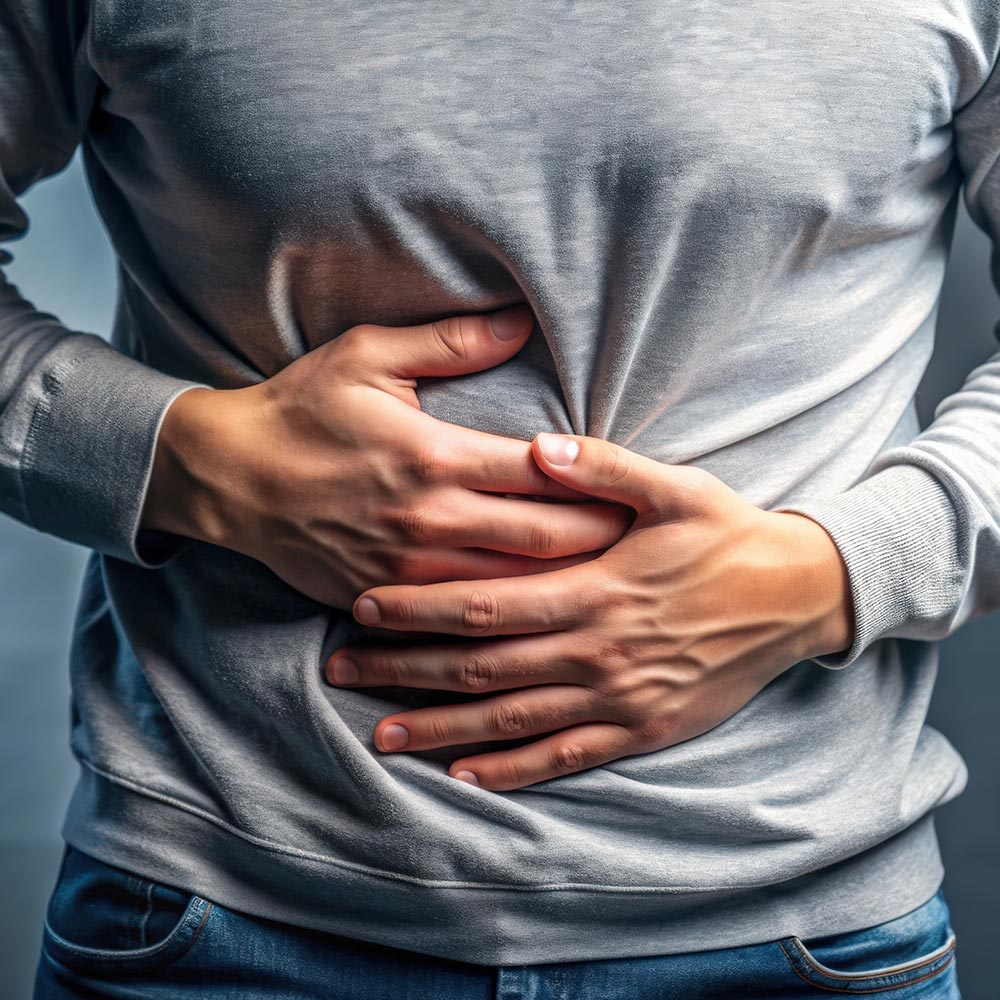
Management
- To start treating IBS, it is important to first identify how severe the symptoms are and which ones are most prominent. If the symptoms do not significantly impact daily life, managing the condition through lifestyle changes and education is often sufficient. 2
- A step-by-step approach is recommended, as some patients might only need clarification and reassurance, while others may require more detailed treatment options.7
- General dietary and lifestyle advice, including increased physical activity, is frequently given at an early stage.7
Exercise8
- Physically active people tend to have more frequent bowel movements and faster digestion than those who are sedentary.
- Patients with IBS should be encouraged to be more physically active. A simple recommendation is to take a 20-minute walk (about 1 mile) each day. The distance and pace can be gradually increased as tolerated.
Diet
- Dietary changes are essential for managing IBS and should focus on reducing fermentable foods.2
- A special diet low in carbohydrates has been shown to reduce symptoms in patients with IBS.2 Examples of such foods include9
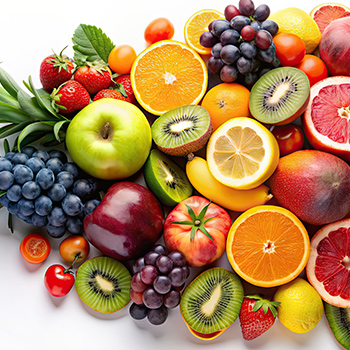
Fruits
Apples, apricots, blackberries, cherries, mango, nectarines, pears, plums and watermelon or juice containing any of these fruits
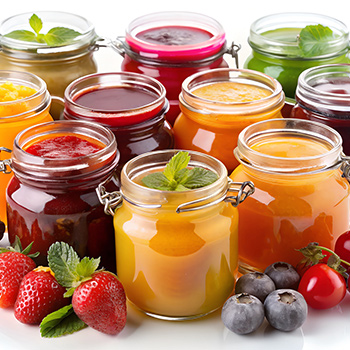
Canned Fruit
In natural fruit juice, large amounts of fruit juice or dried fruit
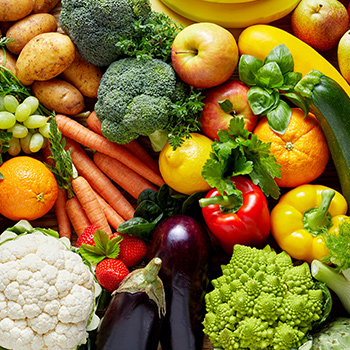
Vegetables
Artichokes, asparagus, beans, cabbage, cauliflower, garlic and garlic salts, lentils, mushrooms, onions and sugar snap or snow peas
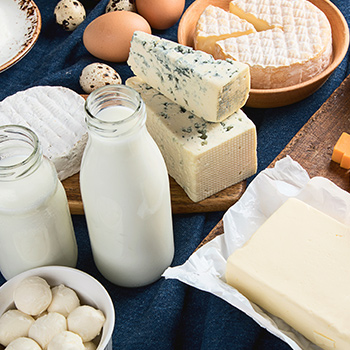
Dairy Products
Milk, milk products, soft cheeses, yogurt, custard and ice cream
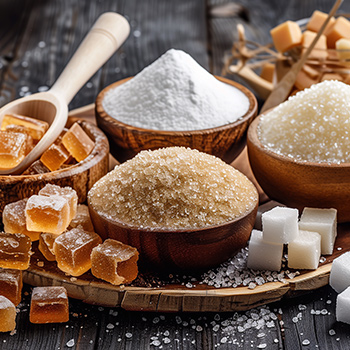
Grains and Sweeteners
Wheat, rye products and honey
- Your doctor might suggest trying a low-carbohydrate diet for a few weeks to see if it helps with your symptoms. If you notice improvement, they may advise gradually reintroducing these low-carbohydrate foods to determine which ones you can tolerate without having IBS symptoms.9
Dietary Recommendations9
- Various changes can benefit people with IBS differently. You might need to adjust your diet for several weeks to determine if your symptoms get better.
Increase Your Fibre Intake
Fibre can help relieve constipation in IBS by softening the stool and making it easier to pass. There are 2 types of fibre:
- Soluble fiber: Found in beans, fruits and oats
- Insoluble fibre: Found in whole grains and vegetables
To help your body adjust to a higher fiber intake, gradually introduce fibre-rich foods into your diet. Adding too much fibre at once can cause gas, which may worsen IBS symptoms. Slowly increasing your fibre intake by 2 to 3 grams per day can help reduce gas and bloating.
Avoid Gluten
- Your doctor might suggest avoiding gluten-containing foods, such as wheat, barley and rye, to assess whether your IBS symptoms improve.
- These foods include most cereals, grains, pasta and various processed products.
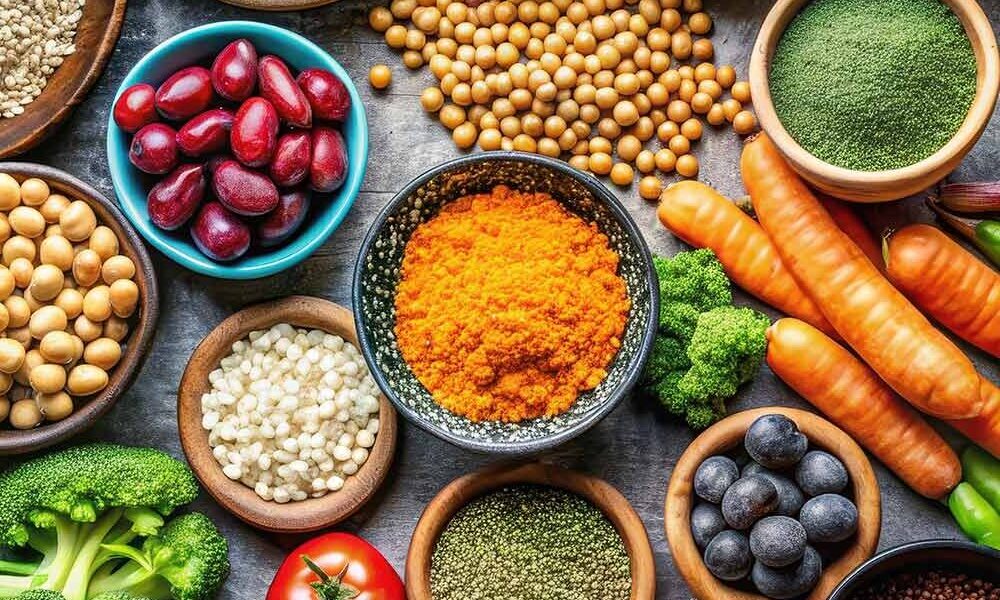
General Advice for Easing Symptoms of Irritable Bowel Syndrome (IBS)10
| Do's2: | Don'ts2: |
|---|---|
| ✓ Prepare homemade meals with fresh ingredients whenever possible. | ✕ Don’t delay or skip meals. |
| ✓ Keep a food diary and note any symptoms to identify and avoid foods that trigger IBS. | ✕ Don’t eat too quickly. |
| ✓ Find ways to relax and manage stress. | ✕ Avoid consuming large amounts of fatty, spicy or processed foods. |
| ✓ Engage in regular exercise. | ✕ Limit your intake to no more than 3 portions of fresh fruit per day (a portion is 80 g). |
| ✓ Consider taking probiotics for a month to see if they relieve symptoms. | ✕ Don’t drink more than 3 cups of tea or coffee a day. |
| ✕ Avoid drinking large amounts of alcohol or carbonated drinks. |

Experiencing IBS Symptoms? Find out.
Take control of your gut health with our easy-to-use IBS Screening Tool. This simple screening tool helps you identify if you may be experiencing symptoms of Irritable Bowel Syndrome (IBS). By answering a few quick questions about your symptoms, our tool can help you determine if you should consult a healthcare professional for further evaluation. Take the first step toward understanding your symptoms today!
References:
- Camilleri M. Diagnosis and treatment of irritable bowel syndrome: a review. JAMA. 2021;325(9):865-877.
- Defrees DN, Bailey J. Irritable bowel syndrome: epidemiology, pathophysiology, diagnosis, and treatment. Prim Care. 2017;44(4):655-671.
- Saha L. Irritable bowel syndrome: pathogenesis, diagnosis, treatment, and evidence-based medicine. World J Gastroenterol. 2014;20(22):6759-6773.
- El-Salhy M. Irritable bowel syndrome: diagnosis and pathogenesis. World J Gastroenterol. 2012;18(37):5151-5163.
- Irritable bowel syndrome (IBS). Johns Hopkins Medicine. Accessed September 2, 2024. https://www.hopkinsmedicine.org/health/conditions-and-diseases/irritable-bowel-syndrome-ibs#:~:text=Physical%20Exam%20and%20Blood%20Test,the%20middle%20of%20the%20night.
- Diagnosis of irritable bowel syndrome. National Institute of Diabetes and Digestive and Kidney Disease. Accessed September 2, 2024. https://www.niddk.nih.gov/health-information/digestive-diseases/irritable-bowel-syndrome/diagnosis
- Simrén M, Törnblom H, Palsson OS, Whitehead WE. Management of the multiple symptoms of irritable bowel syndrome. Lancet Gastroenterol Hepatol. 2017;2(2):112-122.
- Chey WD, Kurlander J, Eswaran S. Irritable bowel syndrome: a clinical review. JAMA. 2015;313(9):949-958.
- Eating, diet, & nutrition for irritable bowel syndrome. National Institute of Diabetes and Digestive and Kidney Disease. Accessed August 28, 2024. https://www.niddk.nih.gov/health-information/digestive-diseases/irritable-bowel-syndrome/eating-diet-nutrition#:~:text=with%20a%20dietitian.-,Eat%20more%20fiber,grams%20of%20fiber%20a%20day.&text=Research%20suggests%20that%20soluble%20fiber,may%20improve%20constipation%20in%20IBS.
- Diet, lifestyle and medicines. National Health Service. Accessed August 28, 2024. https://www.nhs.uk/conditions/irritable-bowel-syndrome-ibs/diet-lifestyle-and-medicines/#:~:text=How%20to%20ease%20bloating%2C%20cramps%20and%20farting,avoid%20products%20containing%20a%20sweetener%20called%20sorbitol.
Other Abdominal Pain
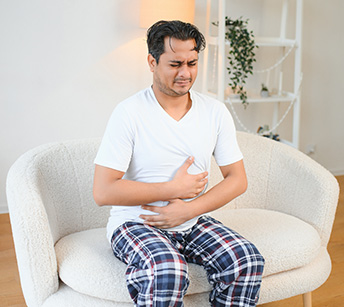
Stomach Pain
Recognize the different types of stomach pain to understand when to seek medical help.
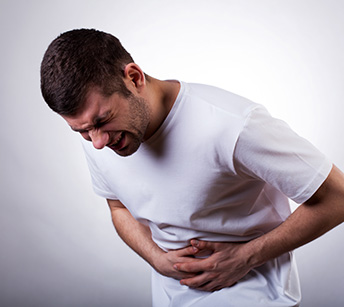
Irritable Bowel Syndrome (Chronic)
Abdominal pain that is experienced for atleast 1D a week for 3 months.
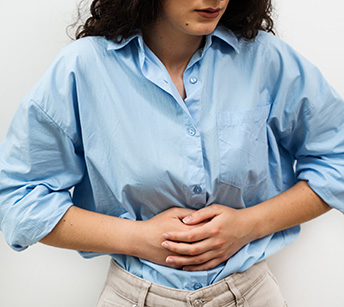
Menstrual Pain
The pain affecting individuals in their menstrual cycles typically centred in the lower abdomen
Colic (Chronic)
The sharp and localized abdominal pain that increases and then decreases in intensity.
01 Urinary Pain
A sudden, sharp, cramping pain in the side that is experienced due to kidney stone.
02 Renal Pain
The intense pain caused by a blockage in the ureter, typically due to a kidney stone.
03 Intestinal Colic
The cramping pain that comes and goes when the intestines attempt to push through a blockage.
04 Biliary Colic
A common type of upper abdominal pain caused by gallstones.
